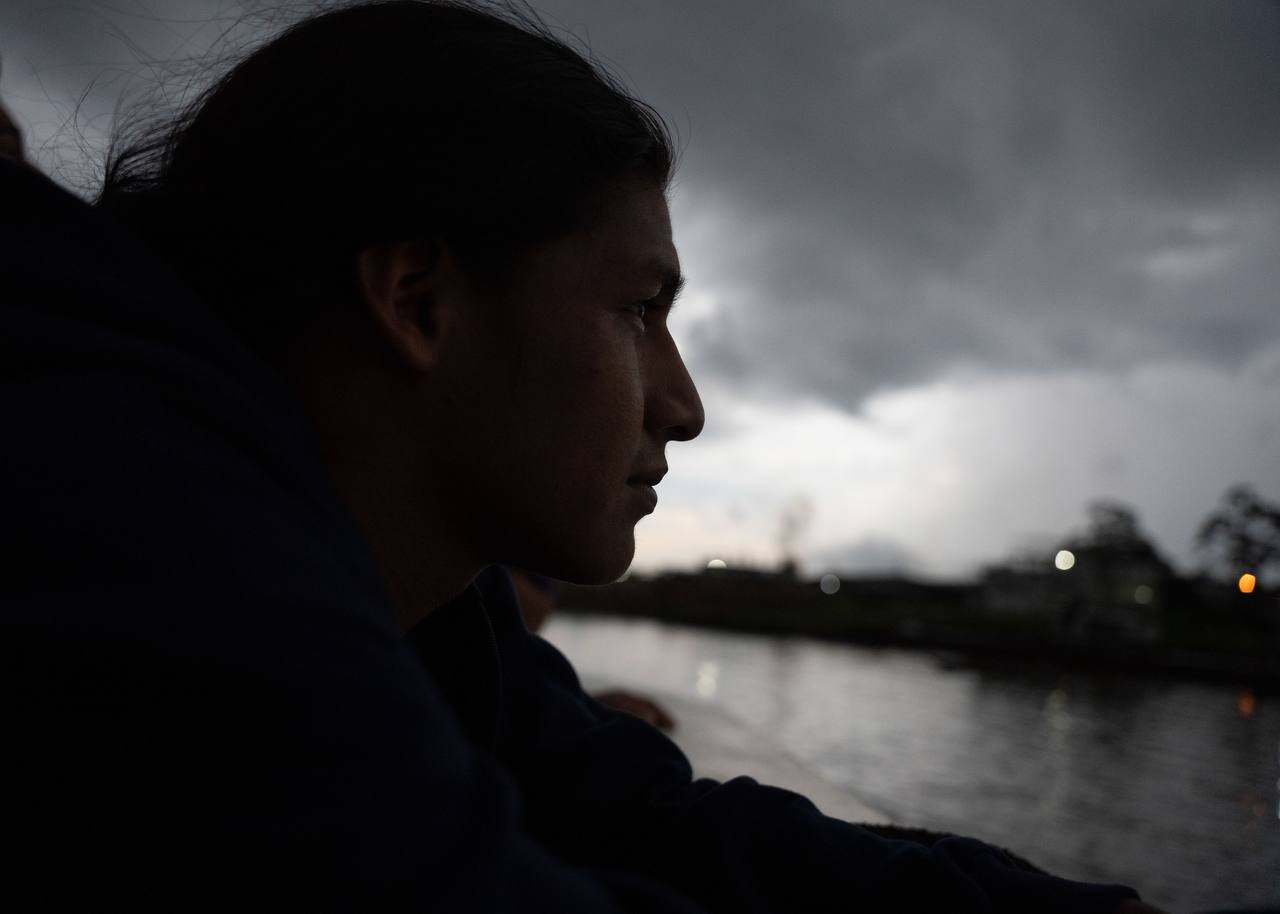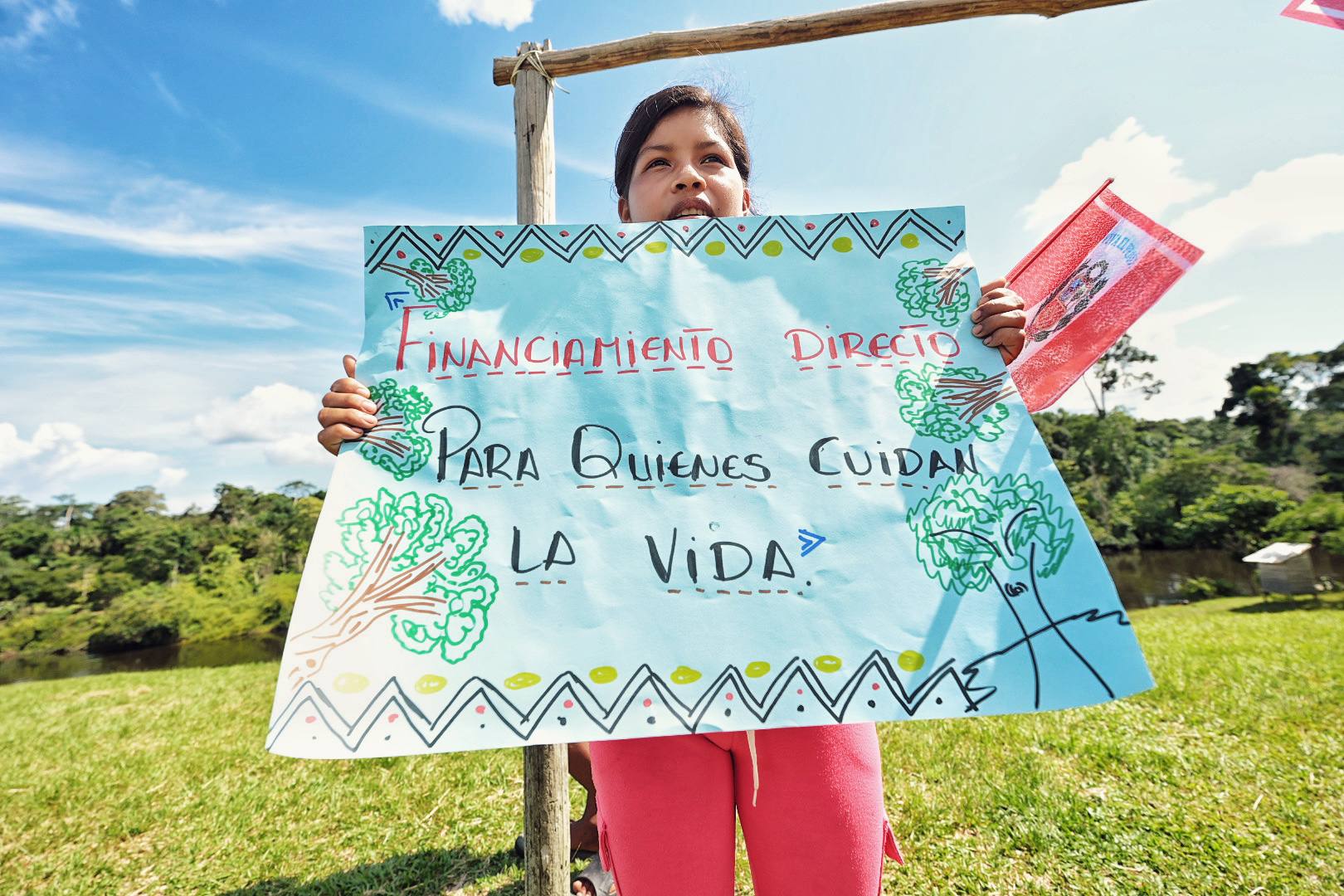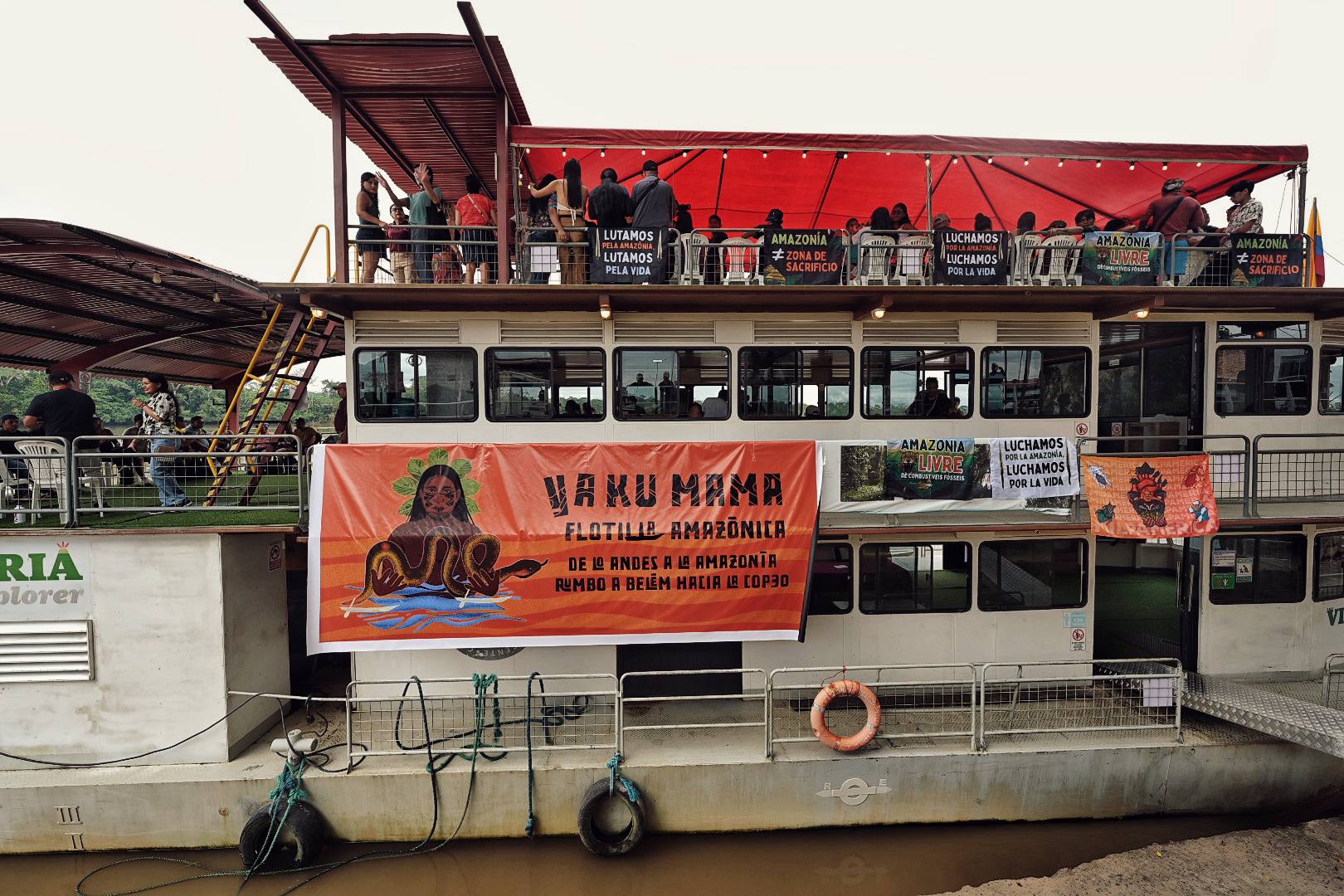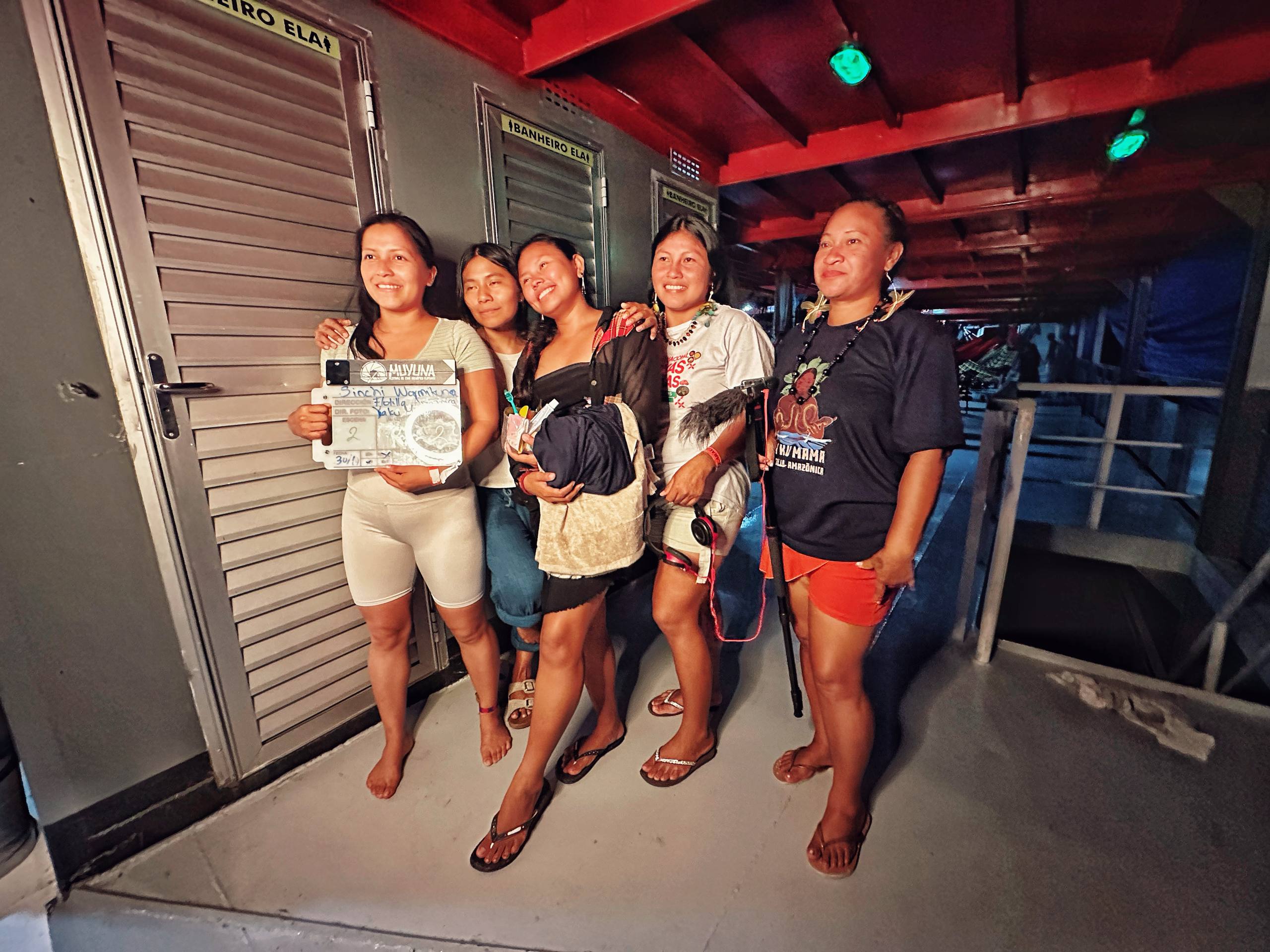
Indigenous Fleet Becomes a Floating Cinema and Audiovisual Production Hub Against the Climate Crisis
During the journey, audiovisual collectives screened their works and led filmmaking workshops. The productions will be part of the COP30 program.
by Lucía Ixchiú / Photos: Yaku Mama Collaborative Coverage
We set out from the port of Tabatinga, heading upriver on a journey of floating cinema. Since Iquitos—and for several months before—the team from the Muyuna collective, a group of artists, filmmakers, and cultural managers who see cinema as a tool for defending the territory, had expressed their wish to share their work and knowledge through community filmmaking.
The day began with a call to join a circle of words, where we moved our bodies, danced, and received the first instructions for what would be the beginning of a new experience for many of the young Indigenous participants—some of whom were taking part in a film workshop for the very first time.
A storytelling exercise allowed us to weave our voices together at the start of a collective, communal, and floating process. This process lasted four of the five days we spent navigating the Marañón River, with the lush rainforest as our backdrop. Those were days of work, dialogue, and learning for the entire fleet, with everyone contributing in their own way.
Cinema, cameras, and creativity took over the deck of the boat, where three groups imagined, wrote, and filmed their projects with the technological support of Muyuna. On this vessel, dreams became part of the journey itself.
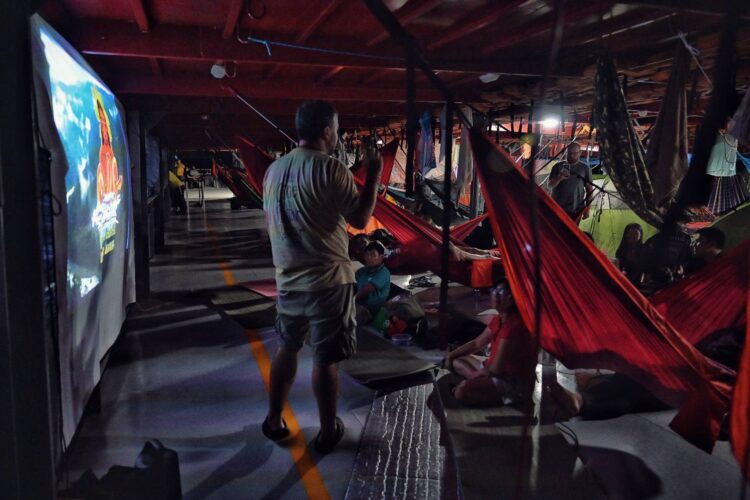
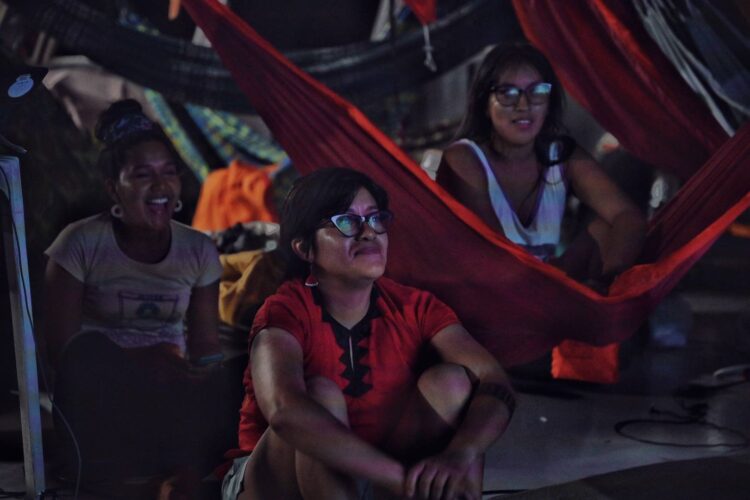
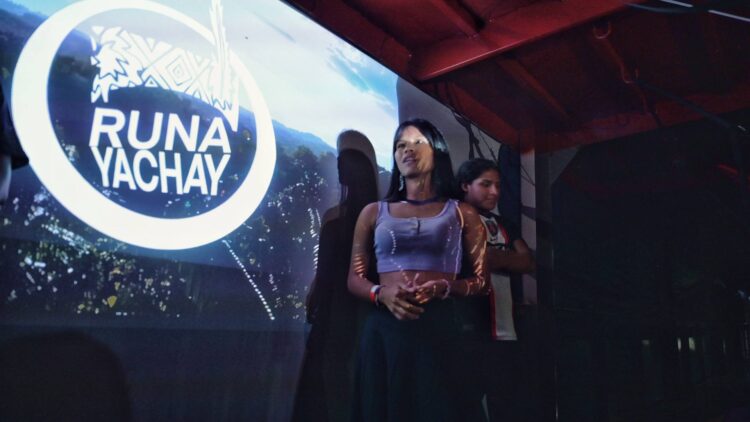
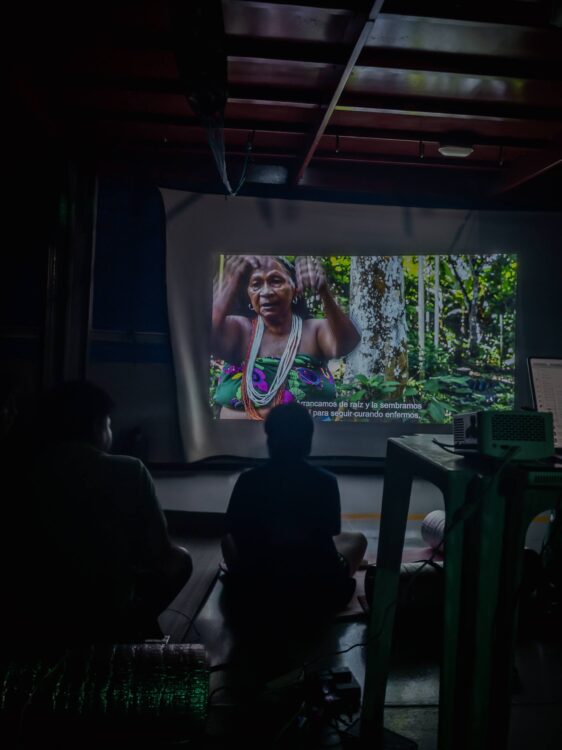
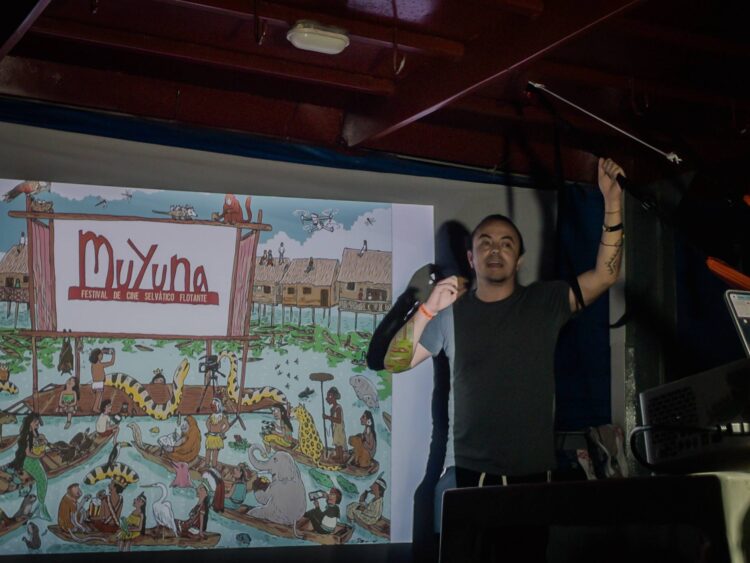
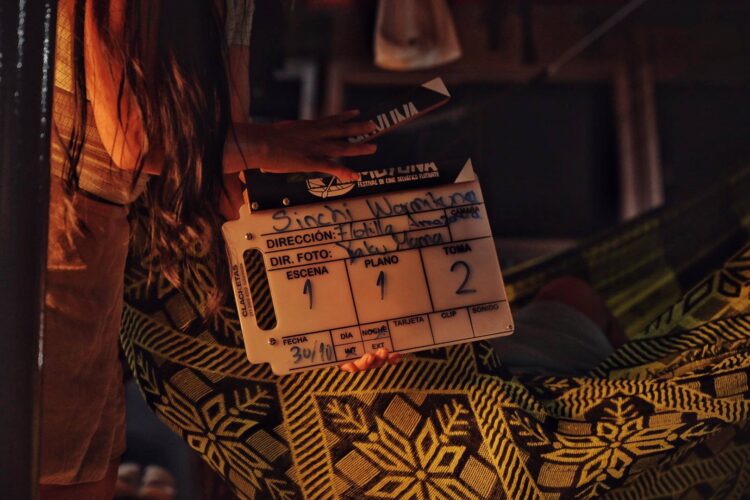
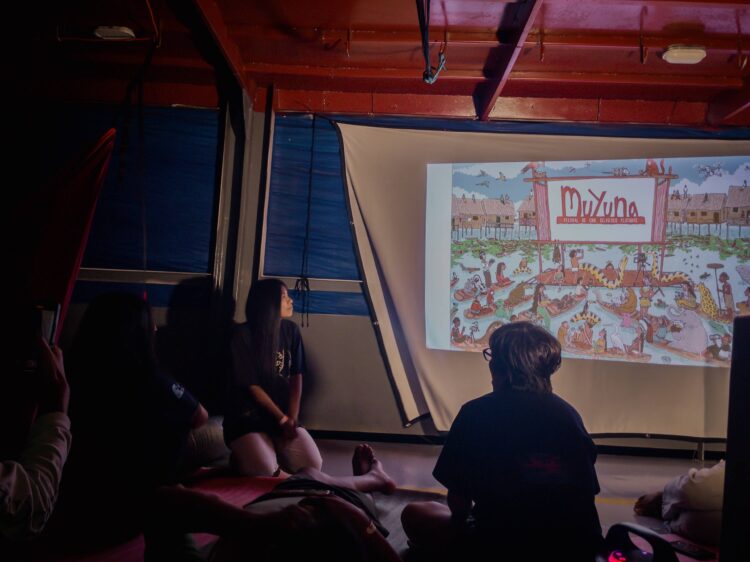
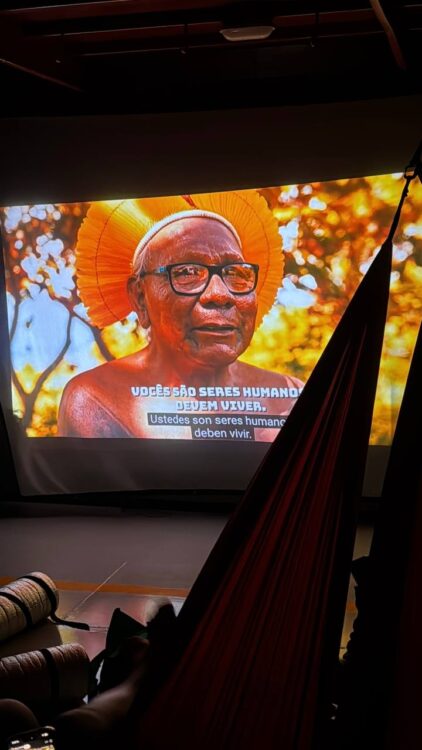
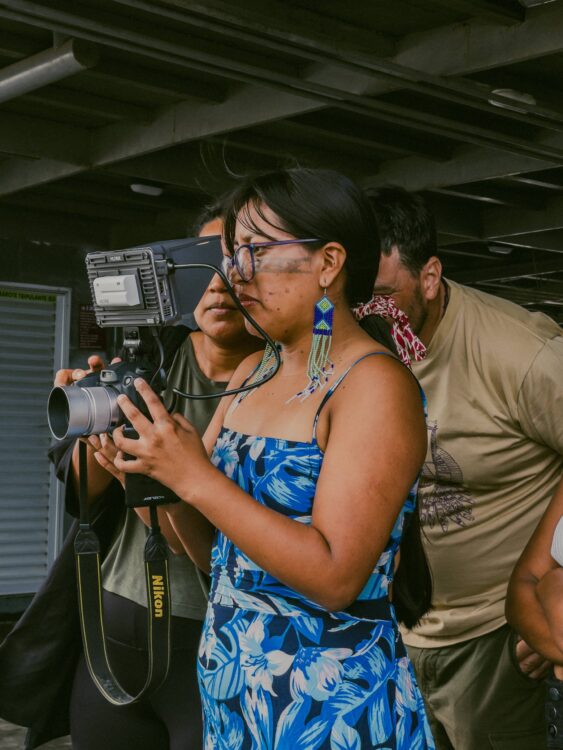
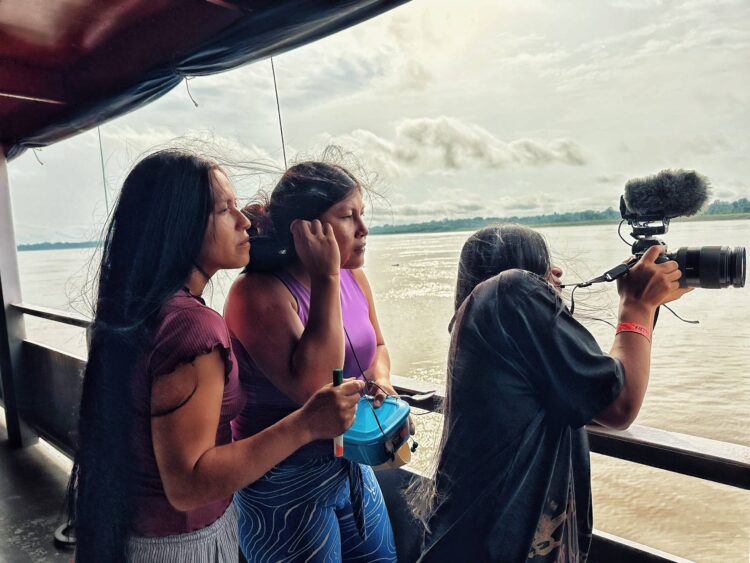
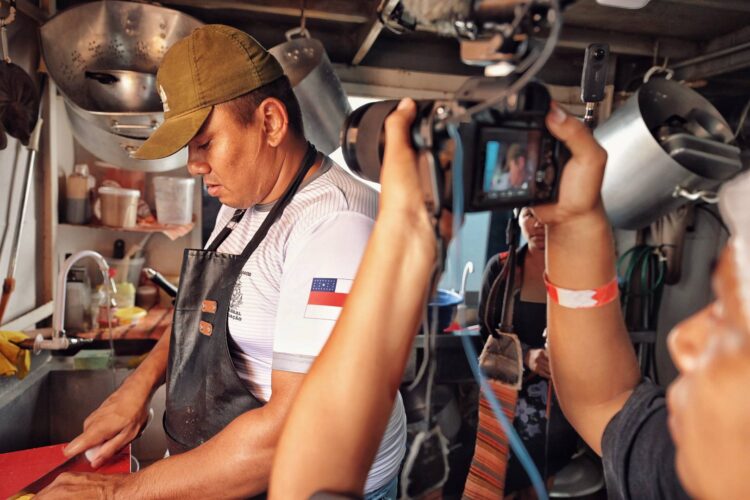
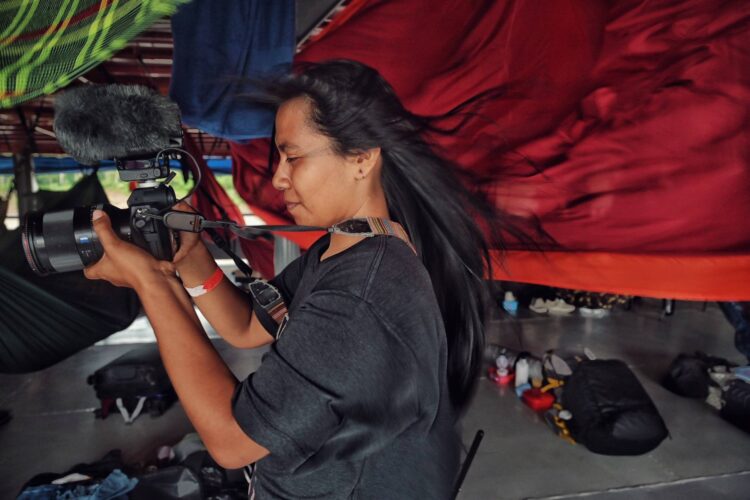
Filming and the first rounds of editing took place along the route from Tabatinga to Manaus, where the idea of organizing a film festival—showcasing the audiovisual creations of the fleet—was born. That vision made the trip even more inspiring: to tell and narrate our own stories through our diversity, languages, and the biomes that accompany the Yakumama.
Making dreams real: for some of the participants, it was not only their first time leaving their country but also their first time holding a camera, a clapperboard, or sound equipment. To dream of making films not just to tell our stories, but to turn this space into a form of defending the territory.

